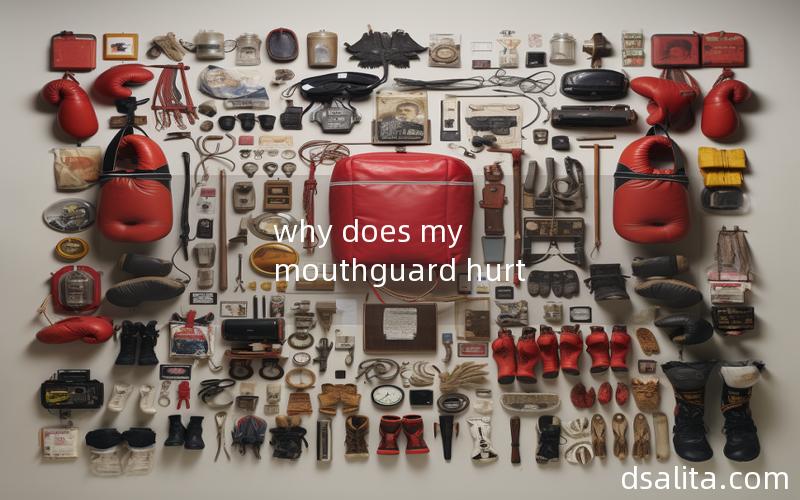Why Does My Mouthguard Hurt?
Many people experience discomfort or pain when wearing a mouthguard, which can be frustrating and distracting. There are several reasons why a mouthguard may hurt, and understanding these reasons can help you find a solution to make wearing your mouthguard more comfortable.
Improper Fit
If your mouthguard does not fit properly, it can cause discomfort or pain. A mouthguard that is too loose may move around in your mouth, causing irritation or sore spots. On the other hand, a mouthguard that is too tight may put pressure on your teeth and gums, leading to pain or even tooth movement.
To ensure a proper fit, it is important to have your mouthguard custom-made by a dental professional. This will ensure that the mouthguard fits your teeth and mouth perfectly, reducing the risk of discomfort or pain.
Material
The material used to make your mouthguard can also impact its comfort level. Some materials, such as hard plastic, may be more rigid and less flexible, which can cause discomfort or pain. Other materials, such as silicone, may be softer and more pliable, making them more comfortable to wear.
If you are experiencing discomfort due to the material of your mouthguard, consider switching to a different type of mouthguard made from a more comfortable material.
Age of Mouthguard
Over time, mouthguards can become worn or damaged, which can impact their comfort level. An older mouthguard may have lost its shape or become warped, causing discomfort or pain when worn.
If your mouthguard is showing signs of wear and tear, it may be time to replace it with a new one. This will ensure that you have a mouthguard that fits properly and is comfortable to wear.
Bite Alignment
If your bite alignment is off, it can cause discomfort or pain when wearing a mouthguard. This is because the mouthguard may put pressure on certain teeth or areas of the mouth, leading to discomfort or pain.

If you are experiencing discomfort due to bite alignment, it may be necessary to see a dentist or orthodontist to correct the issue. This may involve wearing braces or other orthodontic appliances to realign your bite.
Bruxism
Bruxism, or teeth grinding, can also cause discomfort or pain when wearing a mouthguard. This is because the mouthguard may put pressure on already sensitive teeth or areas of the mouth.
If you suffer from bruxism, it is important to address the underlying issue in order to reduce discomfort when wearing a mouthguard. This may involve wearing a different type of mouthguard or seeking treatment for bruxism.
Improper Cleaning
If you do not clean your mouthguard properly, it can become a breeding ground for bacteria, leading to irritation or infection in the mouth. This can cause discomfort or pain when wearing the mouthguard.
To prevent this, it is important to clean your mouthguard regularly using a mild soap or mouthwash. You should also store your mouthguard in a clean, dry place when not in use.
Conclusion
There are several reasons why a mouthguard may hurt, including improper fit, material, age, bite alignment, bruxism, and improper cleaning. Understanding these factors can help you find a solution to make wearing your mouthguard more comfortable and enjoyable.

 Dsalita Boxing
Dsalita Boxing






